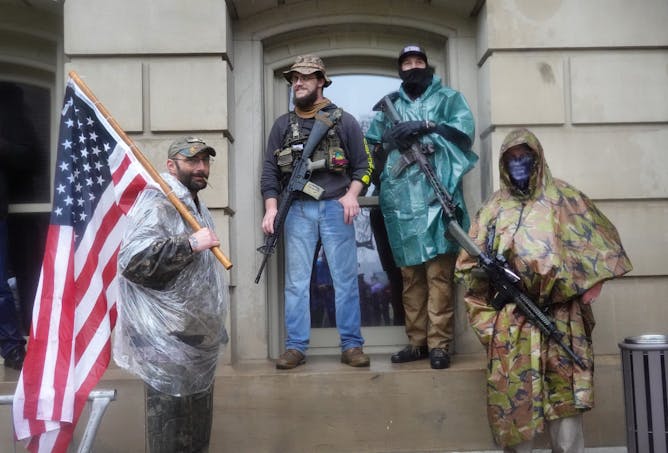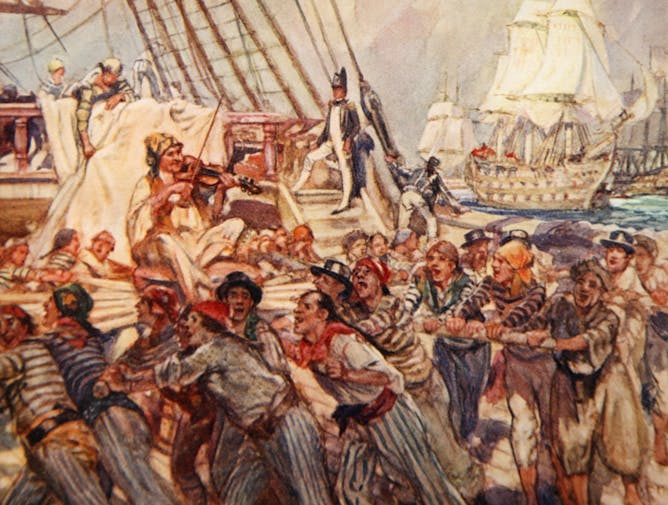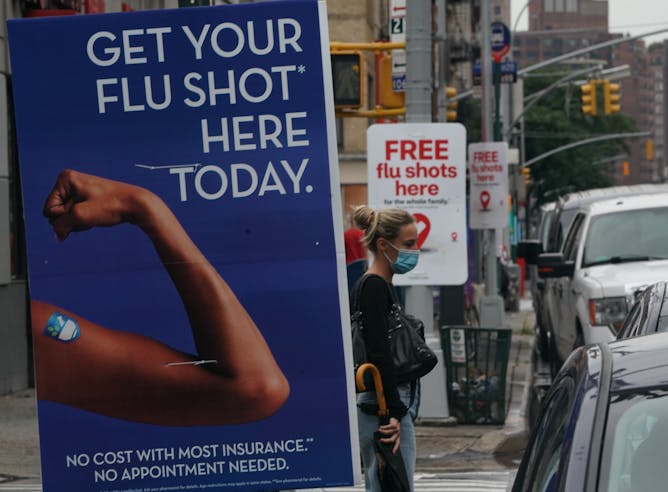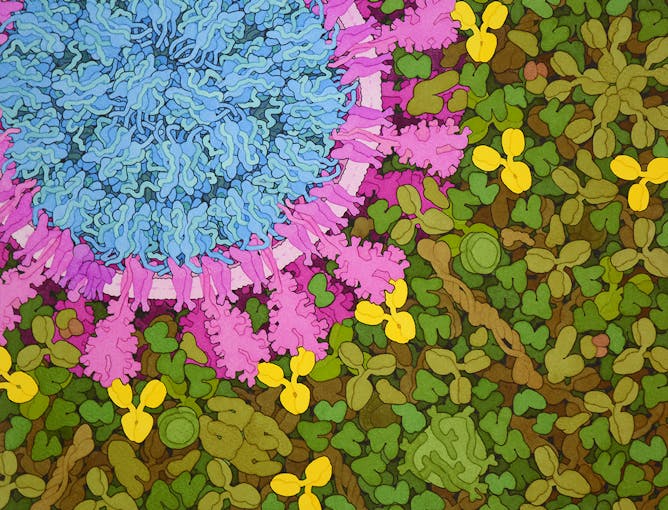|
American democracy is especially fragile now. That’s the conclusion drawn by many in the aftermath of a tumultuous presidential election and the insurrection at the U.S. Capitol. Even President Joe Biden felt obligated to note in his inauguration speech that “democracy is fragile.”
But the handwringers and those mourning the demise of democracy are wrong, writes political scientist Alasdair Roberts. This nation’s democracy has always been fragile. It’s just that now, “despite its long tradition of presenting itself as exceptional,” says Roberts, the U.S. “looks a lot like the other struggling democracies of the world.”
This week we also liked articles about TikTok’s sea chanteys, progress toward a new flu vaccine that you wouldn’t have to get every year and why cities won’t lose their luster because of the COVID-19 pandemic.
|

Armed demonstrators attend a rally in front of the Michigan Capitol in Lansing to protest the governor’s stay-at-home order on May 14, 2020.
Scott Olson/Getty Images
Alasdair S. Roberts, University of Massachusetts Amherst
Everyone's saying it: 'Democracy is fragile' in the United States. But a political science scholar says that has always been the case.
|

Daily life on a ship could be monotonous and dreary, so songs were sung to lighten the mood.
Heritage Images via Getty Images
Jessica Floyd, Community College of Baltimore County
Crews sang the songs to ease the fears, anxieties and loneliness of daily life on merchant ships.
|

Wouldn’t it be nice if one shot could protect you for life?
Bryan R. Smith/AFP via Getty Images
Patricia L. Foster, Indiana University
You need a new shot every year because current flu vaccines provide limited and temporary protection. But researchers' new strategy could mean a one-and-done influenza vaccine is on the way.
|
|
|
-
John Rennie Short, University of Maryland, Baltimore County; Michael J. Orlando, University of Colorado Denver
Two scholars of cities explain why dense, urban areas will survive – and thrive – long after the pandemic ends, and even if they don't get a bailout.
-
Earl Lewis, University of Michigan; Nancy Cantor, Rutgers University - Newark
Two leaders in academia weigh in how numbers and statistics can enforce institutional racism.
-
William Akoto, Fordham University
A scholar of cyber conflict sets out why retaliation doesn't prevent future attacks, and explains what might have a better chance.
|
|

Neutralizing antibodies attach to the tips of the spike proteins of the SARS CoV-2 virus.
David Goodsell/ProteinDatabase
Nathan Ahlgren, Clark University
A biologist explains what proteins do in viruses, how they interact with human cells, how the vaccine delivers mRNA into the cell and how antibodies protect us.
|